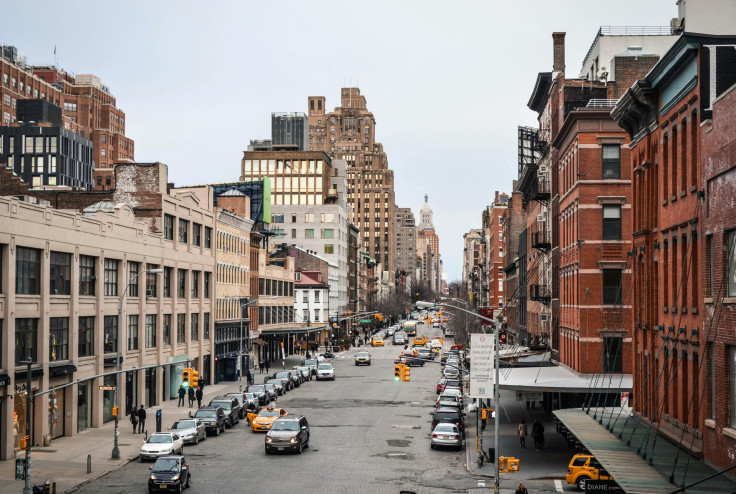
Lower-income neighborhoods are harboring most of New York City's migrant shelters, with residents complaining about the cost it has had on their communities, according to a new report by The New York Post.
Documents obtained by the outlet show that three of the five zip codes with the most shelters (Jamaica, Queens and East New York, Brooklyn) have median incomes below $37,000. In contrast, there are no shelters in the top five zip codes with the highest median income, located in Tribeca, Battery Park, the Financial District and other areas of Lower Manhattan.
Queens is the borough with the most shelters, with 70 of 193. It's followed by Manhattan (49) and Brooklyn (44). An additional 25 are in The Bronx and five on Staten Island. Mayor Eric Adams' office told the outlet that there are now 217 shelters, but declined to reveal additional locations.
About four in five registered shelters are former hotels and lodging establishments. Perhaps the most high-profile is the Roosevelt Hotel in Midtown, which also serves as a point where arriving migrants can get registered by city authorities. Other facilities are houses of worship and recreation centers.
City Hall spokesperson Liz García said that locations are prioritized based on how quickly they can house migrants. The city has ended contracts with facilities after they expired and opens new shelter when needed.
"it is clear that our efforts are working, as we have already helped more than 65 percent of asylum seekers who have come into our care take the next steps in their journeys and move out of our shelter system as they seek to be self-sufficient," García told the outlet.
There are currently more than 60,000 migrants under the city's care, and authorities have received some 200,000 over the past two years, many of them resulting from Texas' Lone Star Operation, which has bussed migrants arriving in the state to Democratic-led sanctuary cities.
The city is also diversifying efforts to deal with the influx of migrants by expanding a program that provides debit cards to migrants.
The initiative is set to reach about 7,300 migrants over the next six months and cost $2.6 million. It's aimed at families with children or pregnant women.
Despite criticism, authorities argue the program is much cheaper than giving food to migrants, as the equivalent cost of doing so for such an amount was about $5.6 million.
The cards only work to buy food and products for babies in places like bodegas, supermarkets and convenience stores. What can be bought is somewhat limited as cooking in migrant hotel rooms is prohibited. All beneficiaries had to sign an affidavit saying they'd use the cards for the intended purposes. If they are found in infraction, they will lose access to the program.
However, Republicans have continued expressing skepticism over the measure. "I appreciate that this is cheaper than a failed system of no-bid contracts, but this is a sign that the migrant crisis is here in perpetuity and the taxpayers are on the hook until the second coming," said Joseph Borelli, the Republican minority leader in the City Council.
© 2025 Latin Times. All rights reserved. Do not reproduce without permission.





